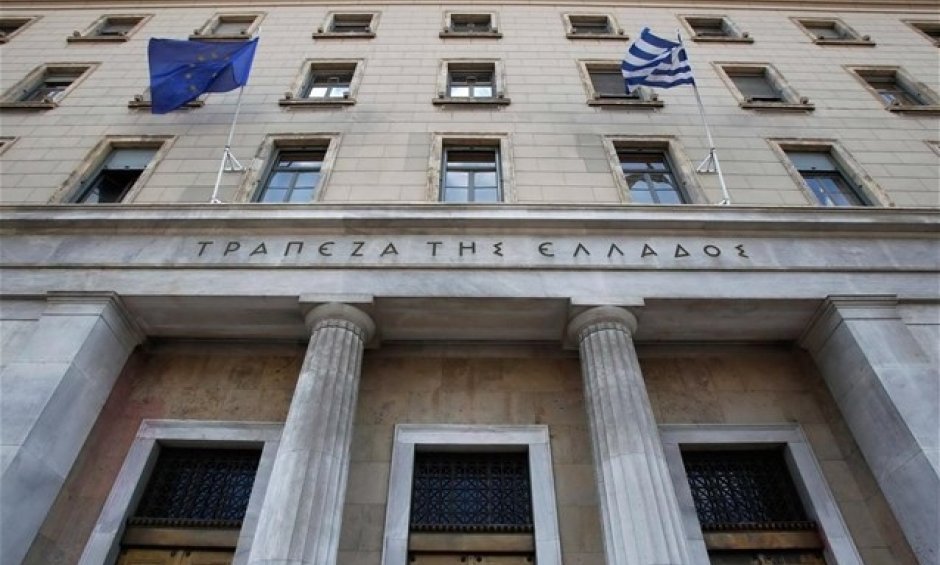A rise in the deficit of the balance of goods is accounted for by a larger increase in imports than in exports. A rise in total exports and imports by 58.7% and 70.4%, respectively, reflects an increase in (mostly oil) prices. At constant prices, the growth rates of exports and imports stood at 19.8% and 36.3%, respectively. In particular, non oil exports of goods grew by 44.2% at current prices (31.8% at constant prices) and non oil imports of goods increased by 42.0% at current prices (33.7% at constant prices).
The surplus of the services balance grew, reflecting an improvement mainly of the travel balance and, to a lesser extent, of the transport balance. Non residents’ arrivals and the relevant receipts rose by 219.3% and 308.2%, respectively, standing at 60% and 91% of their November 2019 levels, respectively. The surplus of the transport balance grew mainly on the back of an improvement in the surplus of the sea transport balance.
The primary income account deficit rose year on year, mainly due to higher net interest, dividend and profit payments. The secondary income account deficit also registered a small increase.
In the January November 2021 period, the current account deficit recorded a decrease of €1.4 billion year on year and stood at €8.9 billion.
A rise in the deficit of the balance of goods is due to the fact that imports increased more than exports in absolute terms. In particular, exports grew by 36.4% at current prices (14.2% at constant prices) and imports increased by 35.6% at current prices (13.3% at constant prices). Non oil exports of goods grew by 27.5% at current prices (21.2% at constant prices) and non oil imports of goods increased by 27.1% at current prices (24.1% at constant prices).
A rise in the services surplus is due to an improvement in the travel services balance; however, this was partly offset by a decline in the surplus of the transport balance. Non residents’ arrivals grew by 96.8% and the relevant receipts by 144.6% year on year, accounting for 47% and 59% of the respective levels in 2019. Net transport receipts dropped by 8.3%.
The primary income account turned from deficit to surplus year on year, mainly owing to lower net interest, dividend and profit payments, while the surplus of the secondary income account rose due to an increase in general government net receipts.
Capital account
In November 2021, the capital account recorded a surplus of €464 million, up by €119 million year on year. In the January November 2021 period, the capital account surplus rose by €1.4 billion year on year and stood at €3.6 billion.
Combined current and capital account
In November 2021, the deficit of the combined current and capital account (corresponding to the economy’s external financing requirements) increased against November 2020 and stood at €2.1 billion. In the January November 2021 period, the deficit of the combined current and capital account decreased year on year, from €8.1 billion to €5.3 billion.
Financial account
In November 2021, under direct investment, residents' net external liabilities stemming from non residents' direct investment in Greece increased by €668 million. The most significant transactions concerned: (a) the 10% participation of Selath Holdings S.à r.l. (Luxembourg), controlled by CVC Capital Partners SICAV-FIS S.A., in the capital increase of the Public Power Corporation S.A. and (b) the sale of Intrasoft International S.A. to Netcompany Group A/S (Denmark).
Under portfolio investment, an increase in residents’ external assets is mainly due to a rise of €4.1 billion in residents’ holdings of foreign bonds and Treasury bills. An increase in residents' external liabilities is due to a rise of €742 million in non residents' holdings of shares of Greek firms, which was offset by a decrease of €461 million in non residents’ holdings of Greek government bonds and Treasury bills.
Under other investment, a rise in residents’ external assets reflects mainly a statistical adjustment (of €762 million) associated with the issuance of banknotes, an increase of €410 million in loans extended to non residents and a decrease of €414 million in residents’ deposit and repo holdings abroad. An increase in their liabilities represents a rise of €4.9 billion in non residents’ deposit and repo holdings in Greece (the TARGET account included).
In the January November 2021 period, under direct investment, residents’ external assets rose by €885 million and residents’ external liabilities, which represent non residents’ direct investment in Greece, increased by €4.7 billion.
Under portfolio investment, an increase in residents' external assets is chiefly attributable to a rise of €20.3 billion in residents' holdings of foreign bonds and Treasury bills. An increase in residents’ external liabilities is due to a rise of €2.2 billion in non residents’ holdings of Greek government bonds and Treasury bills and of €2.1 billion in non residents’ holdings of shares of Greek firms.
Under other investment, residents’ increased external assets reflect a rise of €2.9 billion in loans extended to non residents and a €3.8 billion statistical adjustment related to the issuance of banknotes, which was partly offset by a €1.7 billion decrease in residents’ deposit and repo holdings abroad. An increase in their liabilities represents mainly a rise of €17.1 billion in non residents’ deposit and repo holdings in Greece (the TARGET account included).
At end November 2021, Greece’s reserve assets stood at €12.5 billion.















